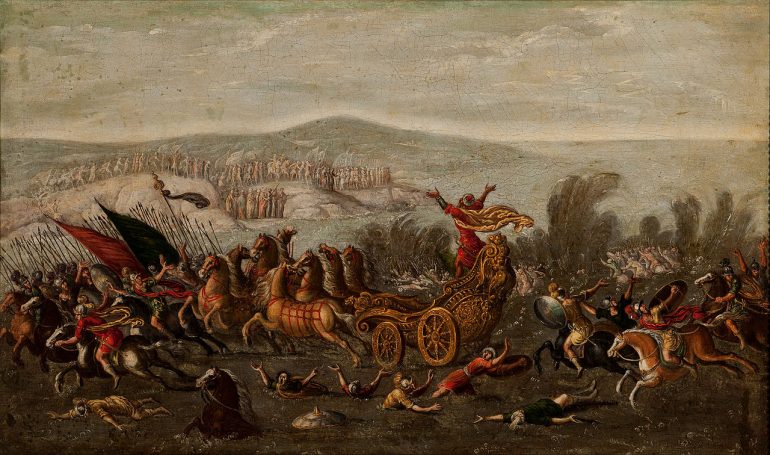This week’s Torah portion tells the story of when G-d gave the Ten Commandments to the Jewish People. It was the first and only time in Jewish history that G-d ever directly communicated with His people. However, oddly enough, the Torah portion’s name does not refer to the Ten Commandments or G-d’s communication with the Jews. Instead, the parsha‘s name is “Yitro,” which is the name of the eponymous Jethro, Moses’ father-in-law.
The reason behind why the parsha is named after Jethro is not because the story of Jethro supersedes the obligations that G-d has given to the Jewish people. Rather, it is to ensure that the Jewish people remember a lesson left by Jethro, the first person to convert to Judaism, once they established themselves as a nation at Mount Sinai.
There are many lessons to learn from this week’s Torah portion. The commandments alone speak volumes and are an established benchmark of tenets in modern law and ethics today, even 3,000 years after being handed down.
So, why is Jethro so important as to have this Torah portion be his namesake?
Parashat Yitro begins with Jethro, “the priest of Midian, hearing of all that G-d had done for Moses and for his people Israel.” According to classical rabbinical thought, this news most likely refers to either the Israelites’ victory over the Egyptians or, as commentator Rabbi Eleazar believes, hearing the sound that traveled from one end of the earth to the other when G-d gave the Jews the Torah (Psalms 29:9).
Still, Jethro was not the only non-Jew to hear the news of G-d’s help in splitting the sea in a victory over the Egyptians, and everyone had heard the sound when G-d gave the Jewish people the Torah. However, Jethro was the first person to convert to Judaism after witnessing such miracles in the transition from Jewish slavery to freedom.
Upon hearing the news of G-d’s actions, and hearing G-d give the Torah to the Jews, Jethro saw it as something special and wanted to be a part of the Jewish nation. Jethro thought that “If G-d will split the sea for the Jews, I want to be one of them.”
But the entire world heard of the miracle, not just Jethro. All the Egyptians who witnessed the 10 plagues saw G-d’s miracles, and all those who were not swallowed up by the sea saw them, too. However, they did not choose to join the Jewish nation.
The lesson one can learn from Jethro is to take action in the moment. Even in the face of being perceived as doing something wrong — prior to converting, Jethro was a priest of a different faith, after all — Jethro shows that trusting in yourself, trusting that what you are doing is the right choice, should serve as motivation to keep you on your path.

